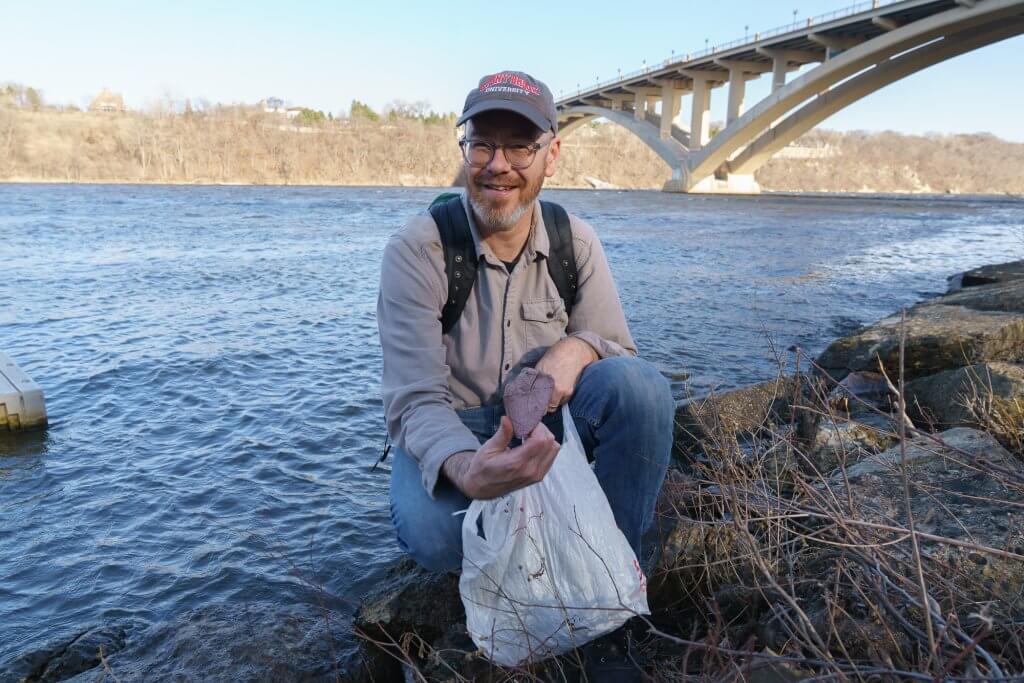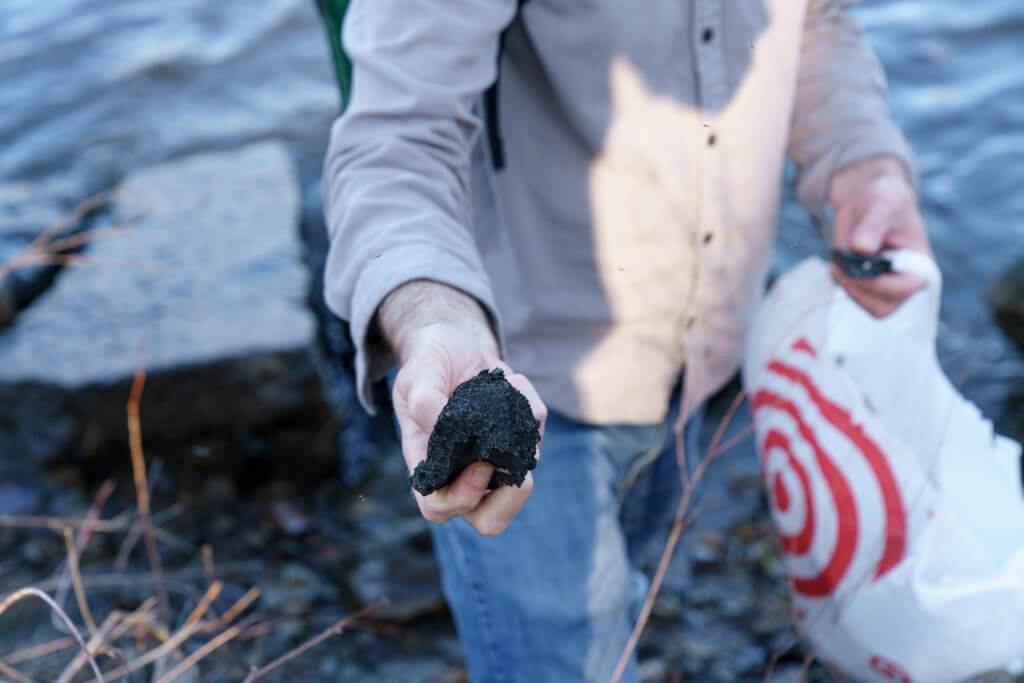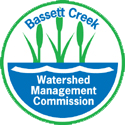News
Taking a closer look at Mississippi River plastic pollution
Tue, Apr 13, 2021Presley Martin brings an artist’s perspective to cleaning up the river. He scours the riverbank near his Minneapolis home for discarded bits of styrofoam and plastic and then arranges the items he finds for photographs or reassembles them into found-object sculptures. For one of his recent projects, Floating Meditations, Presley spent 30 minutes on a dock, grabbing all the plastic that floated by within arm’s reach, and then he photographed the items. The resulting images represent a tiny sample of the vast quantity of plastic polluting the river.

Last year, Presley participated in Art for Water, a program created by the nonprofit environmental organization Freshwater with the goal of engaging artists in the fight to protect our waterways. Inspired by what he learned in this program, Presley created A Field Guide to Plastic of the Mississippi River, a series of images that introduces viewers to the many ways plastics integrate themselves into the natural environment. The Field Guide shows how styrofoam can blend in with rocks and sand, while other obviously recognizable detritus such as blue surgical masks and nitrile gloves make the human impact on the landscape highly visible.
As an environmental artist, Presley hopes to encourage others to look closely at the manmade items that end up on the shores of the Mississippi and consider them more deeply. He likens his search for plastic to hunting for agates or seashells. He is continually surprised by the ways nature integrates pollutants, such as roots that grow through styrofoam packing peanuts. By showing the unexpected in his artwork, he hopes to motivate others to join the effort and clean up along the Mississippi River.
The Mississippi River Plastic Pollution Initiative
This month marks the launch of the Mississippi River Plastic Pollution Initiative (MRPPI), a major effort to combat plastic pollution along the Mississippi River. The United States generates more than 42 metric tons of plastic waste each year, more than any other country. The vast majority of the plastic that pollutes the ocean originates on land, and the Mississippi River, which drains 40% of the continental U.S., transports an enormous amount of litter into the Gulf of Mexico. A problem of this magnitude will take a massive effort to reverse. Fortunately, the MRPPI secured commitments from more than 100 cities along the Mississippi to work toward meaningful — and measurable — change.

To capture a more detailed picture of the amount of pollution along the banks of the Mississippi River, community volunteers in St. Paul, St. Louis, and Baton Rouge are invited to participate in a “citizen science” campaign. Volunteers can help gather data about the amount of plastic pollution in the river by taking a walk, picking up litter, and logging the amount of waste cleaned-up into a free mobile app called the Debris Tracker. The collective data submitted by volunteers at many different locations along the river will help create a larger picture of the scale of the problem and inspire additional action.
You can download the Debris Tracker app and lend a hand today. If you’d like to join an event, the organization 1 Mississippi is hosting several spring clean-ups later this month in celebration of Earth Day. Even if you don’t live near the river, you can always Adopt-a-Drain. Volunteers who sweep up around storm drains prevent debris from flowing into nearby lakes and rivers. Join the growing community of people helping to protect our lakes and rivers.

